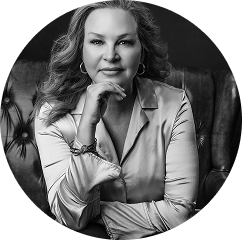
1. What is the first step in buying a home in BC?
Get pre-approved for a mortgage to understand your budget and the loan amount you might receive.
2. Are there any programs for first-time home buyers in BC?
Yes, BC offers the First Time Home Buyers' Program which exempts eligible buyers from the property transfer tax.
3. How much down payment is required?
Typically, you need at least 5% of the purchase price for homes up to $500,000 and 10% for the portion of the price above $500,000.
4. What are the additional costs when buying a home?
Additional costs can include legal fees, inspection fees, property transfer tax, GST (if applicable), and property insurance.
5. What is the Property Transfer Tax and how much is it?
It's a tax payable on the change of title and is calculated as a percentage of the property’s fair market value – 1% on the first $200,000, 2% on the portion above $200,000 up to and including $2,000,000, and additional rates for higher values. First time home buyer's maybe able to have a rebate. check here of local guidelines and exemptions.
6. Can the Property Transfer Tax be waived?
Yes, for qualified first-time home buyers under the First Time Home Buyers' Program.
7. What should I look for during a home inspection?
Key areas include the condition of the roof, foundation, electrical, plumbing, and HVAC systems.
8. What is mortgage insurance and do I need it?
Mortgage insurance protects the lender in case you default on your loan. It is required if your down payment is less than 20%.
9. How do I choose a real estate agent
Look for someone with experience in your desired area and who has a good track record with first-time buyers.
10. What is a fixed-rate vs. variable-rate mortgage?
A fixed-rate mortgage keeps the same interest rate throughout the term, while a variable-rate mortgage can fluctuate with market conditions.
11. How long does the buying process take?
Typically, it can take a few weeks to several months from starting your search to closing the deal.
12. What is an open house?
An event where potential buyers can tour a property for sale without an appointment.13. What are closing costs and how much should I expect to pay?
Closing costs include legal fees, inspection fees, and possible adjustments. They typically range from 1.5% to 4% of the home’s purchase price.
14. What is a strata fee?
A fee paid by owners of condos or townhouses to cover building maintenance and repairs.
15. What should I know about buying a condo vs. a house?
Consider strata fees, the community rules, and shared facilities for condos; houses may offer more privacy and freedom but require more maintenance.
16. What happens on the closing day?
You will sign legal documents, pay the remaining costs, and receive the keys to your new home.
17. How can I save on my home purchase?
Look for homes in emerging neighborhoods, consider your needs vs. wants, and negotiate where possible.
18. What legal considerations should I be aware of?
Ensure you understand the terms of your mortgage agreement and any localzoning laws. It’s wise to work with a lawyer.
19. What is title insurance and do I need it?
Title insurance protects against losses due to title defects. It is recommended but not mandatory.
20. How do I decide on a location to buy?
Consider factors like work commute, school districts, local amenities, and property value trends.
Sources for Further Information:
- BC Government – Property Transfer Tax: https://www2.gov.bc.ca/gov/content/taxes/property-taxes/property-transfer-tax
- BC Government – First Time Home Buyers' Program: https://www2.gov.bc.ca/gov/content/taxes/property-taxes/property-transfer-tax/understand/exemptions/first-time-home-buyers
- Canada Mortgage and Housing Corporation (CMHC): https://www.cmhc-schl.gc.ca
Disclaimer:
The information provided in these posts are for general purposes only. It is not written nor intended to provide legal advice or opinions of any kind. No one should act upon, refrain from acting, based solely upon the materials provided & recorded, or through any hypertext links and other general information, without first seeking appropriate legal and/or other professional advice.

